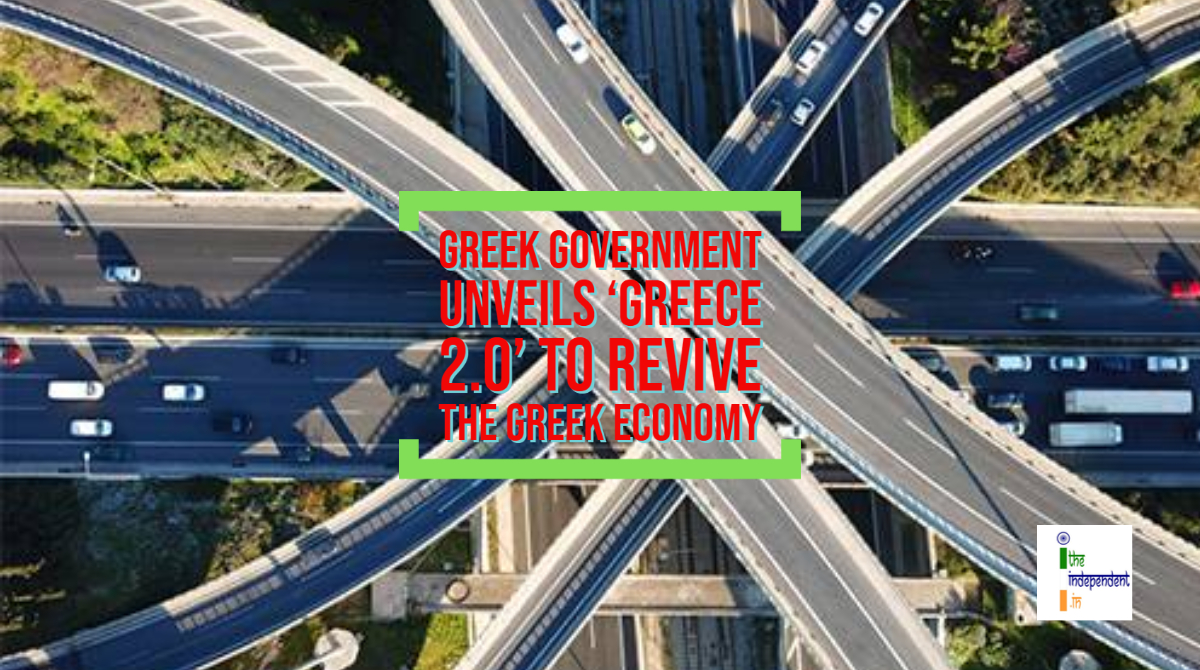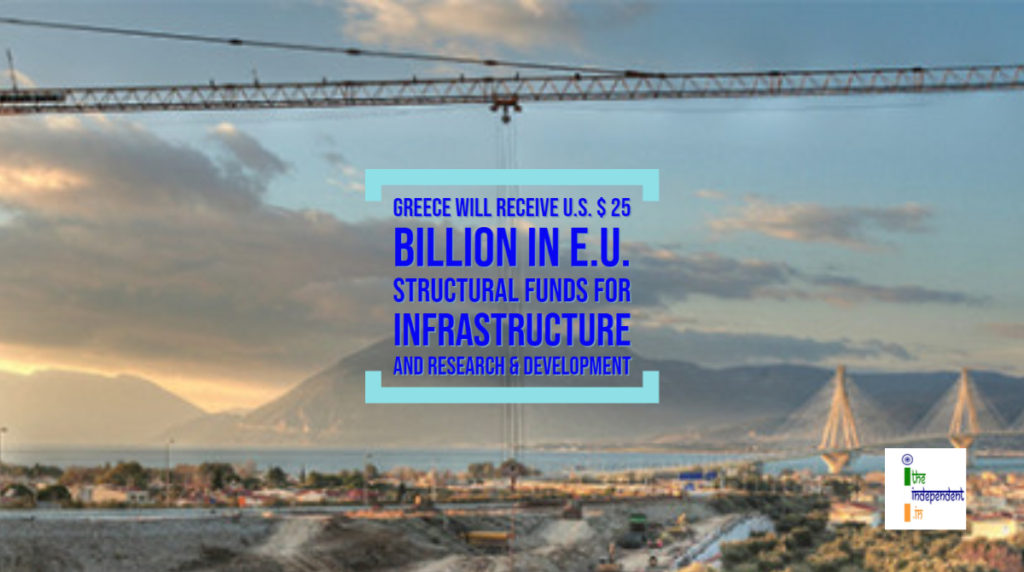
Vision ‘Greece 2.0’ will focus on driving the economic regeneration of Greece
The Greek Prime Minister – Kyriakos Mitsotakis’s Government has unveiled a vision, ‘Greece 2.0’ to focus on driving the economic regeneration of the country.
Under the new vision ‘Greece 2.0’, the Government will spend 57 billion euros (U.S. $ 67 billion) to make the country more sustainable, expand the existing job market and invite foreign investment in the country.
Of these, U.S. $ 67 billion, half will come from banks and investors. A sum of U.S. $ 36 billion will come from the European Union’s (E.U.’s) 750-billion-euro Recovery and Resilience Facility (RRF). The RRF was launched last year to help the European economies fight the economic adversities of the Coronavirus (COVID-19).
The E.U. wants Member States to spend atleast 37% of their share of funds on renewable energy projects and 1/5th on bolstering digital services and research. Greece will also install high-speed fibre optic and 5G wireless networks across the country. It will also digitise services in hospitals, schools and Government offices. The modernization of the railways will also be undertaken along with reforestation of 16,500 hectares of burnt land. The idea is

Separately, Greece will also receive U.S. $ 25 billion in E.U. structural funds for infrastructure and Research & Development. Brussels will give another U.S. $ 9 billion directly to local and regional Governments.
Altogether, over the next 7 years, the E.U. and Greek’s combined investment could reach more than 113 billion euros (U.S. $ 133 billion). This would be 2/3rd of country’s Gross Domestic Product (GDP) last year.
Speaking on the occasion, the Director General of Hellenic Foundation for European and Foreign Policy – George Pagoulatos, said, “This is the largest inflow of funds that Greece has ever seen… it is more important even than the Marshall Plan for Greece in [the post war] period.”
He further said, “The logic is to select projects that have a high multiplier effect and contribute to raising the growth potential of the economy.”

After 7 years, Greece will be a different country. Under the digitization of Government services, Income Tax filings will go digital. Sales receipts from retail businesses would be automatically tallied into their tax declarations, while artificial intelligence would be deployed to catch the tax evaders.
However, the economists feel that even if the country reports growth of 7% in the next 5 years, it will not do any good to the economy. They said that the country needs liberalisation of small enterprises from endless bureaucracy and accumulated debt obligations during the COVID-19 shutdown.
When Mitsotakis came to power in 2016, he promised to slash the corporate tax rate from 29% to 20% in the next 2 years. He had managed to reduce it to 24% before the world was affected by pandemic. Since then, the Government has spent 40 billion euros (U.S. $ 47 billion) to fight the economic effects of COVID-19. This year’s growth has been forecasted at 4.8%.
Presently, Greeks owes 47 billion euros (U.S $ 55 billion) to banks. It owes another 108 billion euros (U.S. $ 128 billion) of unpaid taxes and 38 billion euros (U.S. $ 45 billion) as social security arrears. All combined, this makes up to 115% of its GDP.







